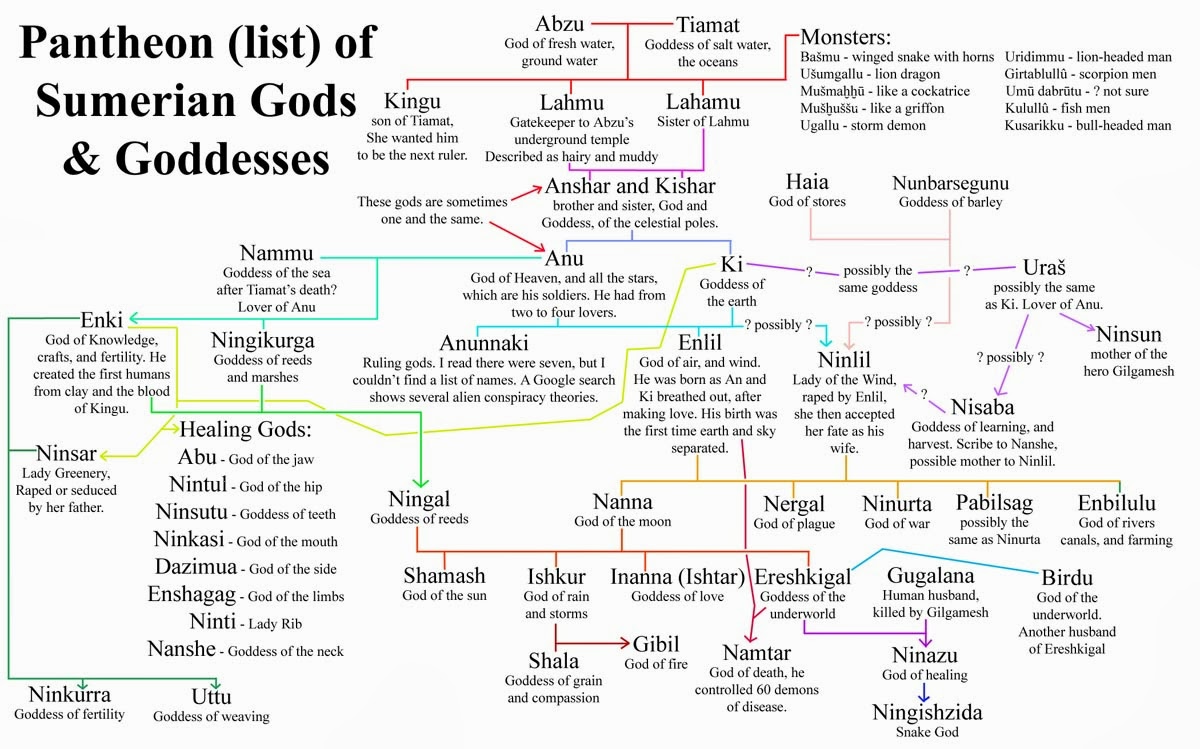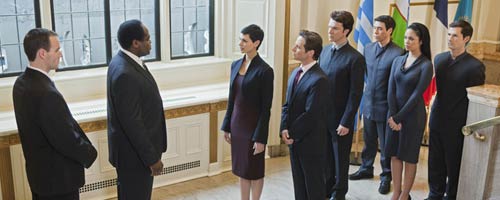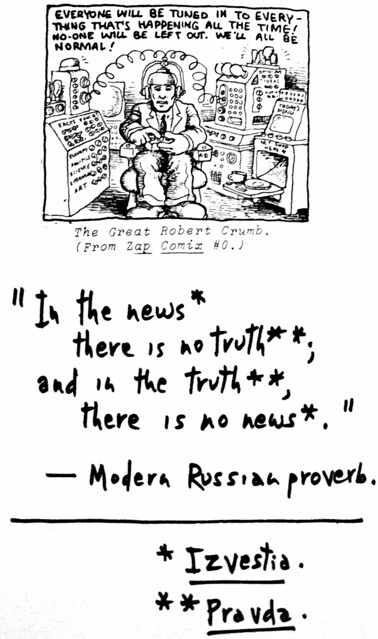/cdn.vox-cdn.com/uploads/chorus_image/image/58151617/robot_head.0.jpg)
Welcome Back, Ashera!! More Fun!! Intelligence is SO Overrated!! You Post the Best Videos and Images!! However, I Often Don't Get What You Are Getting At!! Throughout the Years, Posts on This Site Are Often Way Out in Left or Right Fields (Out of Bounds). I'm Trying to Bring Closure to the Madness, But I Doubt This Will Occur. I'm Leaning Toward The New York Times and The Wall Street Journal Along with Exercise in Nature as a Pragmatic Middle-Way in Modernity. I'm Also Making an Effort of Biblical-Proportions to Focus Upon Psalms, Proverbs, and Ecclesiastes as a Minimal-List Neo-Orthodoxy. Historical-Necessity or Way of the Future (WTF)??Ashera wrote:"Things we believe: We believe that intelligence is not rooted in biology. While biology has evolved one type of intelligence, there is nothing inherently specific about biology that causes intelligence. Eventually, we will be able to recreate it without using biology and its limitations. From there we will be able to scale it to beyond what we can do using (our) biological limits (such as computing frequency, slowness and accuracy of data copy and communication, etc)."Who is that "we"? I do not believe that!
And I wasn't about intelligence at all!Succeed! Succeed!
I suspect that some of you will discover (much to your horror) that my Religious and Political Science-Fiction is quite tame and sane compared with an insane reality which spans thousands (or even millions) of years. I'd like to know how much money and man-hours were spent dealing with my imagined threat to the way things are!! What if you discover that I approve of the General-System while eschewing the Madness Presided-Over by this General-System?? Again, most of my tripe is highly-hypothetical. Most of it is directed toward those who are already near the bottom of the rabbit-hole. A rather chaotic baseline serves as a research frame of reference within which to examine the unmentionable, unthinkable, unknowable, and unimaginable. I have no idea what the REAL Reality of Our Predicament Is, so I poke and prod unlikely concepts to complement more respectable and mainstream pursuits, regardless of whether this upsets anyone's sensibilities or not. Your success or failure at dealing with abstract perplexities is none of my concern. Contextual Superimposition involves random puzzles superimposed upon each-other to shine light upon that which might otherwise remain forever hidden with enslaving and exterminating implications and ramifications. I have yet to experience a proper discussion and/or evaluation of my threads in any serious and credible manner.
Does Sola Scriptura require all 66 books of the Bible?? Why did Martin Luther reject Hebrews, James, Jude, and Revelation?? What if Psalms, Proverbs, and Ecclesiastes are the Real-Deal Minimal-List?? A famous New-Testament theologian told me, "What God Said in the Old-Testament is more important than what Jesus said in the New-Testament." I was shocked. What if there is a lot of deception and/or error in the Holy-Bible?? What if it is too problematic to handle?? What if the old-school Catholics kept the Bible away from the Commoners because they knew it was a Can of Worms?? What if virtually-everything regarding information about our past, present, and future is a mixture of truth and lies?? What if virtually everyone and everything significant are centrally controlled and scripted?? I continue to treat politics, religion, science, history, current-events, New-Age, and conspiracy-theories as Science-Fiction (for better or worse, I know not). The various agencies and factions (throughout the solar-system) undoubtedly have a HUGE Amount of Dirt on EVERYONE, and bargain with this reprehensible-collection of behavioral-excrement. Perhaps some people are brought to power to be toppled from power. The World Trade Center was supposedly built to be destroyed. In the original 'Stargate' movie, 'RA' says "I built your civilization, and now I will destroy it." For what it's worth, Sherry Shriner liked the old Trump better than the new one. She claimed he wasn't involved in the really-nasty stuff, but that he was compromised and sold-out, and that he would be led down a path he wouldn't want to travel (or something to that effect). John F. Kennedy seemed to stray from the script, and perhaps Donald Trump is attempting something similar, which angers his controllers (or something to that effect). An Individual of Interest told me "I'll Hang-On As Long As I Can."
I think I deluded and flattered myself into thinking this thread was actually making a difference, and changing things for the better -- but I should've known better. This world seems to be following a script -- which nothing or no-one will be allowed to significantly interfere with. Perhaps the best I can do is carefully watch things play-out -- which might include humanity bleeding-out. I certainly hope not -- but there seems to be a Brutal Gang of Facts and Dracs on a collision-course with the Human Race. Perhaps I should stock-up on pop-corn, as I prepare to view Earth: Theater of the Universe. Rated "R" for Ridiculous.
I tend to think that we do not require evil in order to achieve a balance. The presence of evil is indicative of imbalance -- and it is not necessary for the beings of the universe to experience evil -- in all of its ugliness and horror -- in order to properly understand and cherish righteousness, purity, and goodness. I sometimes wonder if humanity is a renegade race and an illegal creation -- which is deeply offensive to its Parent Race and Galactic Powers That Be. If the God of this Parent Race declared war on Humanity -- they might seem to be a Satan from the perspective of Human Beings. The Creator and Leader of the New Human Race might be viewed as being a traitor or Luficer from the perspective of the Parent Race. Human Beings might view this being as being their God or Christ. What if the Crucifixion of Christ represents the punishment of Humanity by the Parent Race?? I have no idea if this is the way things are -- but I am modeling this sort of thing -- so as to consider the Human predicament from as many angles as possible. But really, this makes me a heretic of sorts -- even though I mean no hostility or harm toward anyone. Please watch 'Earth: Final Conflict' for clues regarding conflicting races and agendas. I think of the Taelons as being Greys. I think of the Jaridians as being Reptilians. I guess I think of the Atavus as being Annunaki. According to the series, Humans are related to both the Taelons and Jaridians. I have speculated repeatedly that Humans might be related to the Greys and Reptilians -- even though I don't absolutely know that the Greys and Reptilians exist. I am VERY tentative and hesitant in my research and speculation. I presently seem to be on the side of humanity -- but who knows what my editorial slant has been in previous incarnations??
I continue to hypothesize that Human Physicality is a Recent Renegade Development in an Ancient Other Than Human Universe -- and that the Universal Immune System is determined to eliminate Human Physicality -- so as to Purify the Universe. I so hope that I'm wrong. What are the implications and ramifications of 'Namaste'??? I think that people should study Religion, Theology, and Sacred-Texts -- but I can understand why many people reject Religion, Theology, and Sacred-Texts. I think we have a HUGE Religion, Theology, and Sacred-Text PROBLEM on our hands -- and we had better solve it with all deliberate speed. Imagine Zo'or and Da'an arguing about theology and religion!! What do you think about this??!!
I grew up attending the SDA Church -- but it seemed to me that it had been compromised, infiltrated, and subverted -- like I suspect most churches have been -- so I eventually stopped attending church -- even though I continued to be very interested in theology. Is there a good-side to the British-Israel thing (with German and Roman connections)?? I think there is a good-side and a bad-side to just about everyone and everything. Here is some SDA theological controversy for you!! I don't just bash the Jesuits!! The following is taken from pages 393-399 of "Daniel 8:14, the Day of Atonement, and the Investigative Judgment" by Dr. Desmond Ford. Imagine discussing all of these comments and questions with the Queen of Heaven, the Prince of Sirius, and a Sirian King -- in a palace, cathedral, or queen-ship!!
"A. For those who wish to give Ellen G. White greater authority than Scripture.
A very natural reaction to this manuscript would be to "sit" on certain Spirit of Prophecy statements regarding the sanctuary and to affirm in essence, "Here I stand. I can do no other."
I wish to suggest that such an attitude requires more than "standing" to validate it. It will indeed be necessary to do much "other," including the following:
1. Demonstrate that where Ellen G. White and Scripture appear to conflict, veto power must always be given to Ellen G. White rather than vice versa.
2. Reject such clear Scriptures as Hebrews 6:19,20; 9:8, 12, 24-25; 10:19-20, etc., which plainly teach that Christ entered the Most Holy Place at His ascension.
3. Provide clear didactic Scriptures for the doctrine of the investigative judgment. Typological evidence as a basis for doctrine has never been valid -- only typological illustration of doctrine otherwise proved.
4. Explain how it could be that Ellen G. White could sometimes misinterpret her own visions. For example, she understood her first vision to endorse the shut door doctrine -- that probation had closed for the churches and the wicked world. "I saw" often signifies a personal conviction -- not a divine revelation. See its repeated use in the report of the Camden vision.
5.Explain how it could be that Ellen G. White could teach one thing one time, and yet change that view another time -- e.g. her position on the law in Galatians, the covenants, time to close the Sabbath, etc.
6. Explain the several crystal clear Ellen G. White statements which speak of His entering within the veil at His ascension. See, for example, April 19, 1905, Signs of the Times; Desire of Ages, pg. 757.
7. Explain how Great Controversy can be demonstrably wrong in certain exegetical positions and yet correct on the investigative judgment, when this is not demonstrably provable from Scripture, e.g. Ellen White's understanding of the sixth and seventh trumpet. She endorsed the Litch position, which is untenable exegetically and historically. For the revision in 1911 she changed her mind about Litch having given the "exact day" of the prophetic fulfillment.
As regards the seventh trumpet, in later works she placed its fulfillment as in the future, though Great Controversy applies it to the past.
The exposition of Revelation 11 regarding the French Revolution is not accurate exegetically or historically. There never was in France a three-and-a-half year period when the Bible was banned. Hundreds of hours of research by Ellen G. White apologists have failed to find any such thing. The opposite has been found.
Ellen G. White's endorsement of the Miller exposition of Matthew 25: 1-13 is quite indefensible. The passage is not talking of 1844, but of the end of the world. The introductory word "Then" seen in the context of the preceding as well as the following verses, makes this quite plain.
8. Explain how Ellen G. White can use many Scriptural concepts which belong to the last things and apply them both to 1844 and thereabouts, as well as to the end of the world, e.g. the sealing, the shaking, the covering, the fall of Babylon, the cleansing of the sanctuary.
9. Explain Ellen G. White's statements: "The Bible and the Bible only is the source of doctrine," and that "never should the testimonies be carried to the front." "Let all prove every point of doctrine from the Scriptures." It is quite impossible to prove from Daniel, Hebrews, Revelation, or elsewhere that a judgment upon believers began as a result of a change of heavenly ministry in 1844.
10. Provide an apologetic whereby Adventists may go to the world and say: "We have a grand and important truth for you -- a worldwide judgment session is now in process. We cannot show it to you from Scriptures, but we can show it to you from writings of one concerning whom you have never before heard. True, that writer said we should prove all doctrine from Scripture and not from her writings -- but here is an exception -- this basic distinguishing truth we cannot prove from Scripture but it is clear in the writings of Ellen G. White."
When these things have been done in a convincing way, then such exponents can on the basis of the Ellen G. White writings alone, and in opposition to Scripture, say "Here I stand. I can do no other." It may also be helpful at such a time to remember significant Ellen G. White affirmations.
"The Spirit was not given -- nor can it ever be bestowed -- to supersede the Bible, for the Scriptures explicitly state that the word of God is the standard by which all teaching and experience must be tested...Isaiah declares. To the law and to the testimony; 'if they speak not according to this word, it is because there is no light in them.'(Isaiah 8:20)" -- Great Controversy pg. 9. "But God will have a people upon the earth to maintain the Bible and the Bible only as the standard of all doctrines and the basis of all reforms." -- Great Controversy pg. 595.
Inasmuch as Ellen G. White never originated a single doctrine, but only took her stand after others found such doctrines in Scripture (e.g. the Sabbath, health reform, righteousness by faith at Minneapolis, the "daily," etc.), and inasmuch as she refused to permit her writings to decide doctrinal issues, but rather referred inquirers to Scripture (1 Selected Messages 164, 416), we can only say to those who still wish to re-echo Luther's declaration at Worms that his closing prayer is also appropriate for them -- "God help me."
These points are a protest, not against the reality of the gift of prophecy in Ellen G. White, but against undoing the utility of that gift by overdoing our claims for it through affirming the writings as inerrant, or as a basis for doctrine -- even having prior place to Scripture. We would like to remind group A that Luther's prayer was uttered after his affirmation of 'Sola Scriptura'.
B. For those who wish to reject Ellen G. White.
Briefly, I wish to address another group who, to my mind, fall off the straight path into an abyss on the opposite side to that dealt with above. I have friends who, perceiving that Ellen White's comments on the investigative judgment do not parallel Scripture, and learning of her wide use of sources, decide therefore that Ellen G. White must be dropped forthwith, and likewise any belief in her prophetic mission. This seems to them consistent and logical, but so does much other reasoning which ultimately proves unreliable. My friends who pursue such reasoning are distressed that I refuse to join them in their conclusion and therefore I have for them, as well as the group addressed above, some questions.
1. Do they owe nothing of value to Ellen G. White? Would they be Seventh-day Adventists today had there been no Ellen G. White?
2. Would Seventh-day Adventism have survived such crises as that of the first decade of this century when Kellog numbered among his followers a large proportion of our leaders, including Jones, Waggoner, Sutherland, Magan, Paulson, etc., had Ellen G. White not intervened?
3. Suppose there had been no Ellen White at the Minneapolis conference of 1888, would the teachings of Waggoner and Jones on righteousness by faith have ever reached our constituency and paved the way for that proclamation which being the third angel's message in verity is ultimately to lighten the earth with its glory?
4. Going back further still, when in the 1840's many of our forefathers were on the verge of surrendering their faith in the 1844 movement, would this church ever have emerged and consolidated but for the influence of Ellen G. White?
5. Our work is characterized by evangelistic, publishing, colporteur, educational, and health emphases. Which of these would have assumed its present shape and prominence without Ellen G. White?
6. Is it likely that God would have intertwined with our history for its first seventy years the work of one ultimately to be revealed as a fraud? Does God work in harmony with Satan? How likely is it that a person knowing her own hypocrisy could keep up her pretense for seventy years amid crises and gargantuan labors?
7. How much of your rejection of Ellen G. White grows out of a studied understanding of the Biblical teachings on revelation and inspiration?
8. For example, what do you understand the difference to be between these terms -- revelation and inspiration?
9. Has the church universal ever been agreed on the exact nature of inspiration? Do we find that creeds usually define it? Does the modern evangelical scene display unity on the matter?
10. Is the Bible written as we might have expected it to be? Does its content of history, poetry, and outdated legislature comply with our sense of fitness? Does its lack of creedal statements surprise us? Has God so written the Word that doctrinal issues are made crystal clear, and that unbelievers are quickly silenced?
11. Or to say the same thing another way: Is the Bible primarly given to convey information so as to satisfy the mind, or is it a specific moral test? That is to say, has God been content with a weight of evidence for the honest, or has He guaranteed that even the dishonest can be left without excuse?
12. Is there a parallel between the written Word and the Living Word? Did Jesus Christ also evidence some of the surprising features we find in Scripture? That is, did He come as we might have expected? Did He overwhelm all with the evidence that He was what He claimed? Were His statements unequivocal in meaning or sometimes ambivalent? Was He, too, a moral test for His hearers, rather than a great teacher chiefly?
13. Was Jesus both human and divine? And if so, might that also be the obvious nature of Scripture? Did Jesus possess human liabilities and weaknesses such as dependence on creaturely elements such as food, and drink, and rest? Did He ever need to ask questions to secure information? Were His 200 plus inquiries just a front?
14. Did Jesus work as we might expect a celestial visitor to work, or did He also confine Himself in some areas at least to cultural restrictions and limitations? Did He come speaking the language of heaven, or the language of Palestine? Was He dressed as a messenger of light, or as a Galilean peasant?
15. Did Jesus, in some of His expressions, fall short of technical precision, as when He declared the mustard seed to be the least of all seeds?
16. Was Jesus absolutely original in His oral presentations, or is it true, as one scholar has affirmed, that there is not a paragraph from His addresses which does not have its roots in the Old Testament? Is it true, for example, that every phrase of the Lord's Prayer is to be found in previous Scripture?
17. Do Christ's parables contain no difficulties? Are we fully comfortable with His use of hell-fire in the parable of the Rich Man and Lazarus? Do we feel quite content with His commendation of the rascally steward?
18. How is it that the first three gospels differ so much from the fourth? How is it that they cover very similar ground for much of His ministry, and omit the different materials found in John's gospel covering the same time?
19. Can we explain how it is that the first three gospels not only have broad similarity, but even at times use exactly the same blocks of material, same phraseology, same words -- even the same hiatuses?
20. Can any of us tell where the words of John break off and those of Jesus begin, and vice versa, throughout the fourth gospel? For example, in chapter three, which verse marks the close of Jesus's words to Nicodemus? Did Christ utter the famous John 3:16?
21. Why is it that the style of Christ's speeches in John is so far removed from His style as recorded in the other three gospels? Why is that style either identical or almost so with John's own style?
22. What was said at Christ's baptism: "Thou art my beloved Son" or "This is my beloved Son'? Or were both said?
23. Did the healing of the first leper take place before the Sermon on the Mount (Luke), or after (Matthew)?
24. Were there two Gadarene demoniacs (Matthew 8:28) healed, or one (Mark 5:2 and Luke 8:27)?
25. Was the healing of Bartimaeus before Christ reached Jericho (Luke 18:35), or after (Mark 10:46)?
26. Was Luke given by vision the names of the intertestamental ancestors of Christ, as recorded in Luke 3, or did he derive them from sources such as Luke 1:1-4 might indicate?
27. Where did Luke get his second Cainan from his genealogy of Christ? See Luke 3:36,37 and compare Genesis 10.
28. Was Stephen's speech (Acts 7) inspired? If so, does it agree exactly with the Genesis account of the historical events he referred to?
29. Why was the inspired apostle Paul dependent upon news from Chloe for his information about the situation in Corinth? Why didn't God give it to him by vision?
30. What evidence is there in the cream of the New Testament -- the epistles -- that visions were given to facilitate their writing?
31. Were visions necessary for the writer of Proverbs as he conveyed some platitudes known and recognized from the foundation of the world -- such platitudes as: the lazy man shall suffer want, a nagging woman is as unpleasant as continual rain, good news makes a person cheerful, bad emotions cause poor health, to have money is to have many "friends"?
32. Similarly, did the Psalmist need visions in order to exhort us to "Come, worship, and bow down," and to comfort us by the reminder that "all the wicked shall God destroy"?
33. Were visions necessary for the chronicling of the well-known historical events in the ministry of Christ? or for most of the annals of Judah and Israel? How many of the historical authors of Old Testament books ever hint that they received visions in order to make possible their writings? Why was a Paul chosen to set forth the theology of the New Testament? Would not a school boy or a fisherman have done as well under inspiration?
34. Is inspiration "docetic" in its operation? Or is it true of the written Word, as of the living Word that it is just as much human as though not at all "divine"?
35. Does inspiration guarantee equal value for all inspired documents? That is, would we miss the genealogies as much as the Sermon on the Mount? Does Scripture like a living body contain a heart, form, and limbs, so to speak, with some members more essential than others?
36. Is there an economy of miracle in the writing of Scripture? Does God ever do supernaturally what can be done naturally? Why did Christ have others fill the water pots with water, and roll away the stone of Lazarus' tomb?
37. Are the prophecies of Scripture completely unambiguous? Are they so plain that a child may understand them? Have all the details of Biblical prophecies been fulfilled? Are some of them conditional?
38. Is our real problem with Scripture what we don't understand or what we do?
39. When Jesus told His disciples that the real truth about Himself couldn't come from flesh and blood but was a divine gift, is this true also of Scripture, and other agencies of God? Do reason and human expectation have priority in determining what is a revelation from God? Can something be supra-rational without being irrational?
40. Does God usually bestow upon separate items just that attention which is proportionate to their importance in the scale of being? Is His work always complete in every way, or just adequate? Does the human organism demonstrate absolute perfection in its formation, or chiefly adequacy? Is the eye a perfect optical instrument? Does the memory function perfectly? Is the human mind infallible in its reasoning process? Has reason itself suffered from the Fall?
41. Can we explain any of the mighty works of God -- creation, providence, miracle, regeneration, sanctification, atonement? If not, should we expect to have a thorough understanding of inspiration and revelation? If the Fall came through a lusting after forbidden knowledge, could it be that man's restoration involves repentance about such lusting, and the substituting of trust?
42. Is "ye shall know them by their fruits" a simple practical rule that even the uneducated and immature can usually apply with success if honestly desiring to know the truth?
43. What did Jesus mean when He said, "If any man is willing to do His will, he shall know of the doctrine"? Was He saying that it is the heart and not the head, which to the highest doth attain?
44. Is it true that two-thirds of life is conduct, and that God might not be so concerned about some theoretical issues as we are?
45. Is it true that Christ held in His hand the whole map of explored truth but only revealed enough for practical purposes?
46. Was Christ Himself a stone of stumbling and a rock of offense? And if so, could this be true also of some genuine forms of revelation besides Him?
47. Are apocalyptic visions such as those of Daniel, Ezekiel, and Revelation typical of Scripture or exceptional?
48. How much evidence is there in reading the Gospels or the epistles that the writers felt they had divine control and minute heavenly guidance?
49. How much of Ellen G. White advocates behavior contrary to Scriptural standards? What sort of persons would we be if striving to live up to the standards of Ellen G. White? Is it possible that even the sections of Ellen G. White some of us find so taxing would be clarified if we understood the difference between law and gospel, and between law as a standard and law as a method?
50. If Scripture itself has been terribly abused, even employed for the purpose of murdering innocent millions, should it be surprising if illegitimate use be made of other of God's instruments of revelation?
51. How much danger would there be in advocating that God had used Ellen G. White as a messenger if we followed her own admonition to base all doctrine upon the Bible and the Bible only?
52. How much risk would there be in advocating that God has used Ellen G. White as a special messenger if we simultaneously confessed, as she did, that "God and heaven alone are infallible"?
53. How is it that when Ellen G. White chose a source which best expressed her views of inspiration she chose one which was at odds with the fundamentalist churches of the day -- one which advocated that the writers of Scripture were God's penmen, not His pen, and that in their use of rhetoric and logic God was not represented?
54. Is it possible that many who wish to reject Ellen G. White do so on the same basis that King Ahab rejected the prophet of his day -- "I hate him; for he doth not prophesy good concerning me, but evil" -- 1 Kings 22:8? And is it possible that others reject her because of a legalistic upbringing which misused Ellen G. White in advocating law without gospel?
55. If Christ came to comfort the afflicted but also to afflict the comfortable, and if John, His predecessor, likewise rebuked hypocrisy and evil in the religious, and if both, like all other prophets, called for repentance, could it be that some who reject Ellen G. White's prophetic role do so on the basis that she makes them uncomfortable by her demand for repentance in specific areas?
56. If you were choosing a surgeon, or a real estate agent, or a banker, would you feel most comfortable with one who valued the writings of Ellen G. White, or one who rejected them?
57. Do you know the difference between the Greek and the Hebrew views of knowledge? Which one held that the ideal was to gather as much conceptual truth as possible about everything in order that we might be little gods in knowledge? Which one believed that knowledge was worthless unless practical, and doubly worthless unless related to piety? What is meant by "wisdom" in the book of Proverbs? Does that book mean by "fool" one with little intelligence? And is the "wise" man of Proverbs and elsewhere in Scripture someone with great intellect and powers of perception, or someone who reverences God and acts accordingly? When Ellen G. White says of Christ that He held in His hand the great map of unexplored truth but only disclosed that which had practical value, is she following the Greek or Hebrew view of knowledge? Is there a relationship between these concepts and the apparent carelessness of Scripture about some details of fact, for example, its use of round numbers (e.g. "Seventy sevens" -- Daniel 9:25; Matthew 18:22; "fourteen" -- Matthew 1:17; "480" -- 1 Kings 6:1; "ten" -- Daniel 1:20; 7:24; "forty" -- etc.)?
58. Does the Scriptural use of figures of speech such as hyperbole teach us anything about the nature of inspiration? For example, is it literally true that if all Christ had done had been recorded, the world itself could not contain the books that would need to be written? Had the gospel been preached to every creature under heaven in Paul's day, and if so, why was he still planning to go to such places as Spain, and why does Revelation 14:6 picture a message yet to go to every nation?
59. Are you, as a Westerner, completely happy with all of Paul's arguments? For example, see Galatians 3:16, where he plays on the plural and singular meanings of "seed"? Does his use of Hosea in Romans 9:25f actually reflect what Hosea intended? Was Hosea forecasting the coming in of the Gentiles or the re-acceptance of forsaken Israelites? Do 2 Corinthians 3 and the Old Testament source of the veil incident agree? Do you think that the law about not muzzling the ox was only written for our sakes, and not at all for the oxen? See 1 Corinthians 9:8-10. How is it that Paul under inspiration gives a wrong account of his baptized converts in one place, and then remembers more a little later? 1 Corinthians 1:14-16. And why does the Greek original of Galatians show that some of Paul's sentences were never completed?
60. What is "the bottom line" of inspiration? Is it abstract or practical in intent? Did Jesus on earth ever work unnecessary miracles, or did all His mighty works contribute to the meaning of salvation? Has God been content to be misunderstood in some things when a little more effort on His part could have prevented such a thing? Has God really done everything He could to prevent unbelief or has He only done sufficient for those prepared to be honest? If we are all dying people, with but a remnant of time left, what do we need most from God? Has He provided it? 2 Timothy 3:16; John 17:3; 20:31.
These are some of the questions which could be considered by those who urge me to join them in their rejection of the ministry of Ellen G. White. As for me, I must make Scripture the sole basis of doctrine. But for that very reason, I must also be open to any manifestation of the gifts of the Spirit promised therein, including the gift of prophecy. If I find, as is the case with Ellen G. White, one who leads me to Christ and His Word as supreme in all things, and who exhorts to holiness, I should accept the messenger, but without surrendering the right to exercise the canonical test of Scripture. Believing in the priesthood of all believers as well as 'Sola Scriptura' I will remember that "The doctrine that God has committed to the church, the right to control the conscience, and to define and punish heresy, is one of the most deeply rooted of papal errors" (Great Controversy page 293), and that no ecclesiastical creedal statement shall move me one whit if obviously contrary to the plain testimony of the Word of God. We can do no other."
Someone might find this book on Revelation to be somewhat interesting. It was published in 2012 by one of my teachers (Dr. Erwin R. Gane). The Missing Link He didn't see eye to eye with Dr. Desmond Ford (to say the least)! I am not telling anyone to join the SDA church -- but books by some of the more prominent SDA theologians are most interesting. Please do not neglect Biblical and Theological Studies as you grapple with the New Age Mumbo Jumbo!! I tend to think that most of us are going to get blindsided by what's really coming. I have no idea if struggling with this madness will help us when the excrement contacts the refrigeration system. I just re-read 'The Shaking of Adventism' by Geoffery Paxton -- and some of you might find this book to be an interesting read. It is a review (by an Australian Anglican) of the battle over Righteousness by Faith in the SDA church -- up to 1977. I was in the middle of some of this drama -- which is probably one reason why I no longer attend church -- and why I am a Completely Ignorant Fool. Or am I a Pious Zombie?? I'm easily confused as I continue to beat against the rocks of infidelity. Is the SDA church a British-Israel Cult controlled by Jesuits and Alphabet Agents?? Oh Boy!! I need to think about something else. I bought that Dr. Erwin Gane book on Revelation -- and Dr. Desmond Ford's book on Daniel (1978) complete with a forward by F. F. Bruce, and a very interesting introduction. Why do I do this to myself? I know not what I do.
I just finished reading Dr. Gane's book -- and I found it deeply troubling. It contained nothing new -- but it summarized the historical Adventist prophetic viewpoint with surgical precision and nerves of steel. It is a very violent book -- but we seem to live in a violent universe -- ruled by a violent God. Perhaps things have always been that way. Perhaps things will always be that way. Perhaps things have to be that way. I get the feeling that this world, and the human-race, were an experiment -- to attempt to make things better for everyone -- but that things went very wrong -- and might've made things worse -- with a helluva lot of hard-feelings. Gane's book almost seems to be a verdict against humanity (as sinners in the hands of an angry God). I am presently very troubled regarding humanity -- and with the management of humanity. Keep studying the Bible -- from Genesis to Revelation -- but don't expect it to make you happy. Try to get in-tune with whoever wrote the Bible -- and then apply this level of spirituality to a multidisciplinary study of life, the universe, and everything. Now I'm going to finish Dr. Ford's book. We really need to deal with this sort of thing -- whether we like it, or not -- whether we believe in God, or not. God might not believe in us -- and perhaps with some justification. Considering the possibilities has literally ruined my life. BTW -- consider reading 'The Openness of God' by Dr. Richard Rice -- regarding Prophecy, Foreknowledge, and Freedom.

Last edited by orthodoxymoron on Fri May 03, 2024 6:19 am; edited 10 times in total





































































































































































